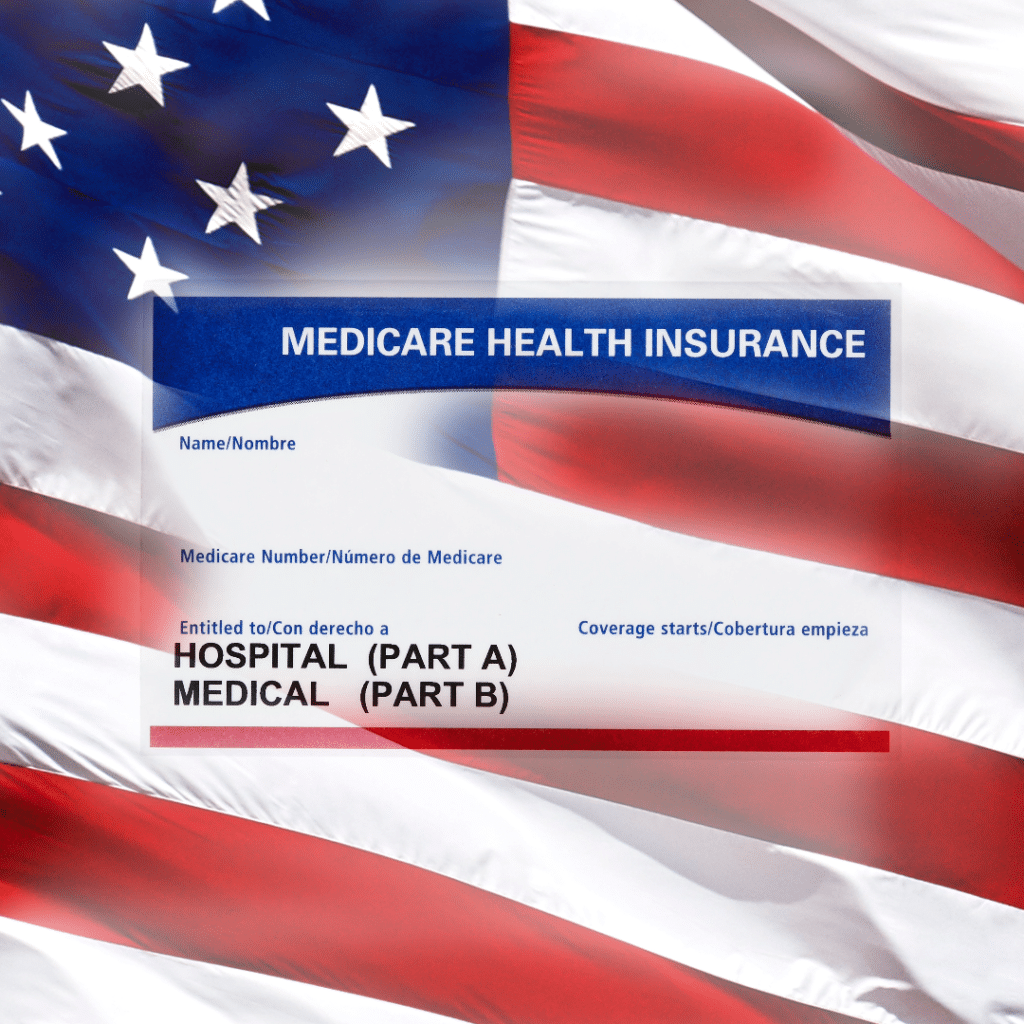How Does Medicare Work?
We make the complex simple
Senior Help and You provides access to personalized advice from qualified professionals that understand your unique needs.
We can help navigate the Medicare system and provide answers to questions related to Social Security Benefits, Retirement, and Financial Planning.

What is Medicare?
Medicare is more than just a federal health insurance program. It’s a way to protect your health and your wallet as you get older or face certain medical challenges. Medicare covers a wide range of services, from hospital stays and doctor visits to preventive care and prescription drugs. But Medicare also has different parts, each with its own costs and benefits.
If you have questions about Medicare or need help enrolling, we are here for you. We can explain how Medicare works, compare different plans and options and guide you through the process step by step. You don’t have to figure it out on your own – we are happy to assist you as much (or little) as you like.
How Medicare Works
To join Medicare, you need to follow two simple steps:
1. Sign up for Part A and Part B: Part A covers inpatient care in hospitals and skilled nursing facilities. Part B covers outpatient care like doctor visits, lab tests, and durable medical equipment. You can enroll in both parts when you turn 65 or qualify for Medicare due to disability or a specific medical condition. You can also sign up during certain times of the year if you missed your initial enrollment period. Find out when and how to sign up by calling our number at 1-877-835-9806.
2.Choose how you want to get your Medicare benefits. You have two main choices: Original Medicare or Medicare Advantage. Original Medicare gives you the freedom to see any provider that accepts Medicare across the country. Medicare Advantage is an alternative way to get your Medicare benefits through a private plan that may offer extra perks like vision, hearing, and dental coverage. If you go with Original Medicare, you can also add a drug plan (Part D) and a supplemental policy (Medigap) to help lower your out-of-pocket expenses. We at Senior Help And You can help you explore your options and compare plans side by side. Call our office at 1-877-835-9806 today!
Original Medicare

Medicare Part A (Hospital Coverage)
Part A is the hospital insurance part of Medicare. It covers inpatient care at hospitals, skilled nursing facilities and some other types of facilities. It also covers home health care services if you need them.
However, Part A does not cover long-term care, such as staying in a nursing home for a long time. You may want to consider buying long-term care insurance if you think you may need this kind of care in the future.
Most people do not pay a premium for Part A because they paid Medicare taxes while working. But Part A is not free – you still have to pay a deductible every time you are admitted to a hospital. You can get supplemental insurance to help with this cost.
If you need help with enrolling in Part A or understanding what it covers, we are here for you! Contact us today and we will answer your questions and guide you through the process.
Medicare Part B (Medical Insurance)
Medicare Part B covers two types of services: medically necessary and preventive. Medically necessary services diagnose or treat medical conditions according to accepted standards. Preventive services help prevent illnesses or detect them early for more effective treatment.
Part B usually has a higher cost than Part A. You have to pay a monthly premium that depends on your income, as well as a deductible and coinsurance. Some people may choose to delay enrolling in Part B if they have other coverage. We can help you decide if this is a good option for you and avoid any penalties.
If you are already receiving Social Security benefits when you turn 65, you will be automatically enrolled in Part B. Otherwise, you will have to enroll yourself at age 65. It is important to apply for coverage before you need it to avoid any gaps in your insurance.

Decide Your Medicare Coverage

Medicare Part C (Medicare Advantage)
Medicare Part C, also known as Medicare Advantage (MA), is a way to get your Medicare coverage through a private insurance company. Part C plans are optional and offer some benefits that Original Medicare (Part A and Part B) does not cover, such as dental and vision.
Part C plans combine Part A (hospital insurance), Part B (medical insurance) and usually Part D (prescription drug coverage) into one plan. You still have to enroll in Part A and Part B, as well as pay their premiums, but you also enroll in Part C and pay an additional premium.
Part C plans come in different types, such as HMOs or PPOs. With an HMO, you have to choose a primary care provider and get referrals to see specialists. With a PPO, you have more flexibility to choose doctors and facilities within a network.


Medicare Part D (Prescription Drug Coverage)
Medicare Part D is the prescription drug coverage part of Medicare. It helps pay for some of your retail prescription drug costs. Part D plans have monthly premiums, out-of-pocket costs and copays. Some plans also have an annual deductible.
Part D plans vary in their coverage, so it is important to choose the right plan based on your medication needs.
Unlike Part A and Part B, you do not enroll in Part D through Social Security. You enroll in Part D through a private insurance company that offers a plan in your area.
Part D plans are optional, but you may face a penalty if you enroll late. There are also specific times when you can enroll or disenroll from Part D.
An Overview of Medicare Parts A, B, C, & D
Medicare Part A (Hospital Coverage)
Part A is the hospital insurance part of Medicare. It covers inpatient care at hospitals, skilled nursing facilities and some other types of facilities. It also covers home health care services if you need them.
However, Part A does not cover long-term care, such as staying in a nursing home for a long time. You may want to consider buying long-term care insurance if you think you may need this kind of care in the future.
Most people do not pay a premium for Part A because they paid Medicare taxes while working. But Part A is not free – you still have to pay a deductible every time you are admitted to a hospital. You can get supplemental insurance to help with this cost.
If you need help with enrolling in Part A or understanding what it covers, we are here for you! Contact us today and we will answer your questions and guide you through the process.
Medicare Part B (Medical Insurance)
Medicare Part B covers two types of services: medically necessary and preventive. Medically necessary services diagnose or treat medical conditions according to accepted standards. Preventive services help prevent illnesses or detect them early for more effective treatment.
Part B usually has a higher cost than Part A. You have to pay a monthly premium that depends on your income, as well as a deductible and coinsurance. Some people may choose to delay enrolling in Part B if they have other coverage. We can help you decide if this is a good option for you and avoid any penalties.
If you are already receiving Social Security benefits when you turn 65, you will be automatically enrolled in Part B. Otherwise, you will have to enroll yourself at age 65. It is important to apply for coverage before you need it to avoid any gaps in your insurance.
Medicare Part C (Medicare Advantage)
Medicare Part C, also known as Medicare Advantage (MA), is a way to get your Medicare coverage through a private insurance company. Part C plans are optional and offer some benefits that Original Medicare (Part A and Part B) does not cover, such as dental and vision.
Part C plans combine Part A (hospital insurance), Part B (medical insurance) and usually Part D (prescription drug coverage) into one plan. You still have to enroll in Part A and Part B, as well as pay their premiums, but you also enroll in Part C and pay an additional premium.
Part C plans come in different types, such as HMOs or PPOs. With an HMO, you have to choose a primary care provider and get referrals to see specialists. With a PPO, you have more flexibility to choose doctors and facilities within a network.
Medicare Part D (Prescription Drug Coverage)
Medicare Part D is the prescription drug coverage part of Medicare. It helps pay for some of your retail prescription drug costs. Part D plans have monthly premiums, out-of-pocket costs and copays. Some plans also have an annual deductible.
Part D plans vary in their coverage, so it is important to choose the right plan based on your medication needs.
Unlike Part A and Part B, you do not enroll in Part D through Social Security. You enroll in Part D through a private insurance company that offers a plan in your area.
Part D plans are optional, but you may face a penalty if you enroll late. There are also specific times when you can enroll or disenroll from Part D.

